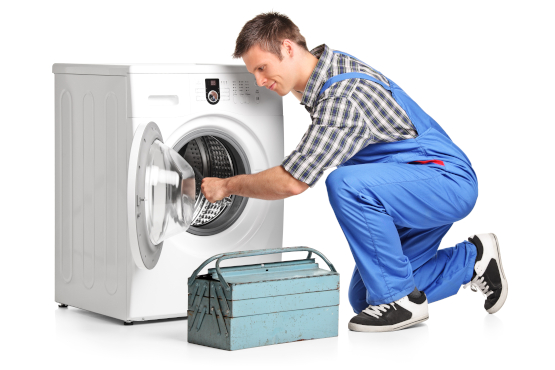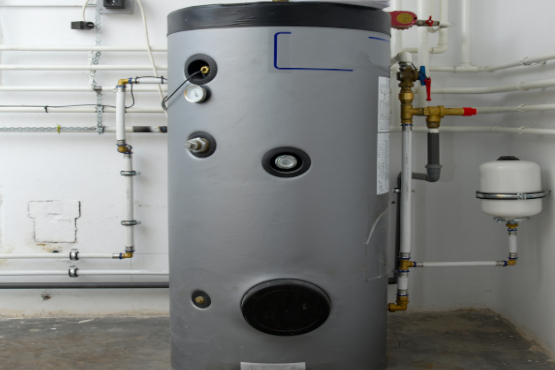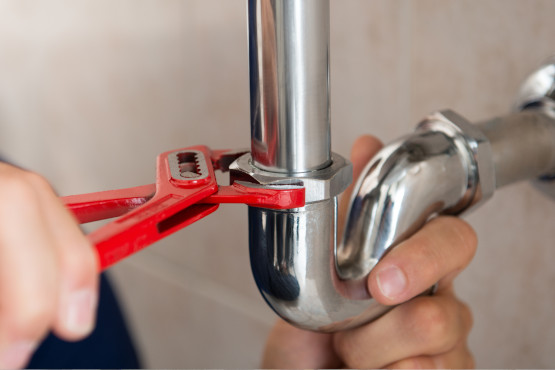Water Heater Repair Richmond, TW9, TW10
If you're facing issues with your water heater in Richmond, TW9, TW10, understanding the type of unit you have is essential. Common problems include inconsistent hot water, leaks, and strange noises indicating potential failures. Regular maintenance, such as flushing and anode rod replacement, can enhance efficiency and extend lifespan. Hiring qualified technicians guarantees proper diagnoses and repairs. To explore various repair options and preventative measures that can save you money and hassle, keep looking for more insights.
Key insights
- Identify common water heater issues like leaks, inconsistent temperatures, or unusual noises to determine if repairs are needed.
- Regular maintenance, such as sediment flushing and anode rod replacement, can extend the lifespan of your water heater.
- Choose a qualified repair service in Richmond, TW9, TW10 with experience, proper certifications, and transparent pricing.
- Consider upgrading models over 10-15 years old for better energy efficiency and modern features.
- Typical repair costs range from £75 to £200, depending on the issue and parts needed.
Understanding Water Heater Types
When considering which water heater type suits your needs best, it’s essential to understand the options available. Tankless systems provide hot water on demand, eliminating the need for a storage tank. This can save space and energy, making it a popular choice for smaller households. Electric models are commonly used in homes without gas access; they feature heating elements that efficiently warm water. For those seeking energy efficiency, heat pump options are worth exploring. These systems draw heat from the surrounding air, markedly reducing energy consumption compared to traditional electric or gas water heaters. Each type has its unique benefits, so evaluate your home's requirements and preferences to determine the best fit for your hot water needs.
Common Water Heater Problems
Although water heaters are generally dependable, they can experience a range of common issues that disrupt their performance. You might find your unit not heating water, producing minimal hot water, or leaking from valves or heating elements. Unusual noises can indicate deeper problems that need a professional's attention. Safety discharge leaks or overflow dripping often signal issues with pressure or temperature regulation. Faulty thermostats and heating elements frequently cause inadequate hot water supply. Additionally, mineral build-up and sediment can diminish efficiency, leading to further malfunctions. To maintain ideal function, ensure proper water heater installation and check your plumbing connections regularly. Monitoring water pressure can also help prevent these common problems from escalating.
Signs Your Water Heater Needs Repair

Recognizing the signs your water heater needs repair can save you from unexpected cold showers and costly damage. If you notice inconsistent water temperatures or hear unusual noises like banging or rumbling, it may indicate sediment build-up or mechanical issues. Leaking valves or visible tank corrosion suggests damaged seals or pressure problems that require immediate attention. A significant decrease in hot water output could signal a broken heating element or electrical malfunction. Don’t ignore safety discharge leaks or overflowing valves, as these point to pressure build-up needing inspection. Regular anode rod replacement can prevent tank corrosion, while addressing vent pipe issues ensures proper exhaust flow. Timely intervention can extend your water heater’s lifespan and maintain efficiency.
Temperature Fluctuations: Causes and Solutions
Temperature fluctuations in your water heater can be a frustrating experience, often stemming from several underlying issues. One common cause is faulty thermostat calibration, which can lead to inconsistent heating cycles. Additionally, electrical supply issues may disrupt the power flow, resulting in unpredictable water temperatures. Mineral build-up and sediment can impair heating elements, exacerbating the problem. If you notice sudden temperature drops or surges, a malfunctioning temperature sensor or safety cutoff device might be at fault. Regular maintenance, including flushing sediment and inspecting thermostats, is vital for stabilizing water temperature. If necessary, consider temperature sensor replacement to guarantee accurate readings. Addressing these issues promptly can restore comfort and efficiency to your water heating system.
Strange Noises From Your Water Heater
If you hear strange noises coming from your water heater, it’s crucial to address the issue promptly, as these sounds often signal underlying problems. Banging or popping noises typically indicate sediment buildup in the tank, causing overheating and uneven expansion. Rumbling sounds may suggest mineral deposits impacting tank insulation and efficiency. Whistling or high-pitched noises could be symptoms of pressure valve issues or trapped air within the system. If you notice changes in intensity or frequency, it might point to a failing thermostat or a worn-out pump. Early intervention can prevent severe damage, leaks, or complete system failure, ensuring your water heater operates efficiently under ideal water pressure. Don't ignore these signs; they can save you from costly repairs.
Water Heater Leaks: Identifying the Source
Water heater leaks can lead to significant problems in your home, so identifying the source quickly is crucial. Start by checking for puddles beneath the unit or signs of rust and mineral buildup around connections. A faulty pressure relief valve, corroded tank, or loose fittings often cause these leaks. Pay special attention to the internal tank; corrosion or cracks might result in slow leaks that aren't immediately noticeable. Leaks around heating elements or drain valves typically originate from worn-out seals or improper installation. Additionally, ensure your tank insulation is intact to support effective temperature regulation. Identifying the leak source early can help you prevent further damage, saving you from costly repairs down the line.
Sediment Buildup and Its Effects
Have you noticed unusual noises coming from your water heater? This could be a sign of sediment buildup. Over time, mineral deposits like calcium and magnesium settle at the bottom of the tank, creating insulation around the heating element. As a result, the heater has to work harder, leading to reduced efficiency and increased energy consumption. Excessive sediment can even cause overheating, risking damage to the tank and potential leaks. You might hear popping or rumbling noises during operation, indicating that sediment is impacting performance. Regularly flushing the tank and maintaining proper tank insulations can help prevent these issues and extend your water heater's lifespan. Don’t ignore these signs; addressing sediment buildup is vital for maximum performance.
The Importance of Regular Maintenance
Sediment buildup can lead to significant performance issues, highlighting the necessity of regular maintenance for your water heater. By scheduling annual inspections, you can catch problems like leaks, faulty thermostats, or heating element issues early. Flushing the tank regularly removes sediment, improving efficiency and preventing overheating. Additionally, proper tank insulation and strategic water heater placement can enhance energy efficiency, lowering your utility bills. Regular checks of thermostat calibration ensure accurate temperature settings, contributing to reliable performance. Routine evaluations of pressure relief valves and electrical connections not only enhance safety but also reduce the risk of unexpected breakdowns. Prioritizing maintenance extends your water heater's lifespan and minimizes the likelihood of costly emergency repairs.
DIY Troubleshooting Tips
When your water heater isn't functioning as it should, you can troubleshoot a few common issues before calling for professional help. First, check the thermostat settings; make sure it's calibrated to around 120°F (49°C). Inspect for visible leaks around the tank, which may indicate tank corrosion or loose fittings. Listen for unusual noises; banging or rumbling can signal sediment build-up or a faulty heating element. If you suspect power issues, reset the circuit breaker or fuse box. Additionally, consider flushing the tank periodically to remove mineral deposits that impair heating efficiency. finally, if your water heater’s performance still lags, anode rod replacement might be necessary to prevent further corrosion and extend the tank’s lifespan.
When to Call a Professional
If your troubleshooting efforts haven’t resolved the issues with your water heater, it’s time to call a professional. You should contact a technician immediately if your electric heater is leaking or flooding your property. If you're experiencing no hot water or inconsistent temperatures, don’t hesitate to seek expert help. Unusual noises like banging or hissing indicate deeper problems, while malfunctioning pilot lights or electrical controls require immediate attention. Additionally, signs of corrosion, mineral build-up, or safety discharge leaks are clear indicators for professional intervention. Investing in energy efficient upgrades or smart water heaters can also provide eco-friendly solutions, enhancing both performance and sustainability. Don’t compromise on safety; let a qualified technician handle the repairs.
Choosing the Right Repair Service in Richmond, TW9, TW10
Choosing the right repair service for your water heater in Richmond, TW9, TW10 is essential, especially since not all providers offer the same level of expertise and reliability. Look for a service experienced with popular brands like Pulsacoil, Megaflow, and Gledhill to guarantee reliable fixes. Confirm that technicians are fully qualified and insured, preferably Gas Safe registered or NICEIC approved. Prioritize companies that provide quick turnaround times and extensive diagnostics to accurately identify issues such as faulty thermostat settings or inefficient tank insulation. Additionally, consider providers offering transparent pricing and warranties on parts and labor for long-term peace of mind. Don’t forget to verify if they address water softening issues, as this can considerably impact your system’s performance.
Cost Factors for Water Heater Repair
Understanding the cost factors for water heater repair in Richmond, TW9, TW10 is essential for budgeting and decision-making. Generally, you’ll pay between £75 and £150 per hour, influenced by the complexity of the fault. If your solar heating or tankless systems require specific parts, such as heating elements or smart controllers, expect additional expenses. Emergency repairs will typically cost more due to the urgency and after-hours service rates. Your total repair bill may rise if multiple issues are found or extensive parts need replacement. Many service providers offer free quotes, so take advantage of this to gauge expected costs before proceeding. Being informed helps you make better decisions regarding your water heater's maintenance and repair needs.
Energy Efficiency and Water Heaters
As modern technology advances, energy efficiency in water heaters has become a vital consideration for homeowners and businesses alike. By investing in models with high efficiency ratings, you can significantly reduce your energy consumption and utility bills. Tank insulation plays a crucial role in this, as it minimizes heat loss and guarantees that your water heater operates optimally. Look for energy-saving features, such as smart thermostats and improved heating cycles, which enhance performance. Regular maintenance, like flushing the tank and adjusting the thermostat, also boosts efficiency. If you're considering an upgrade, ENERGY STAR-certified water heaters offer substantial long-term savings and environmental benefits. Prioritizing these factors will help you enjoy hot water while minimizing your energy footprint.
Upgrading vs. Repairing Your Water Heater
When facing issues with your water heater, deciding between upgrading and repairing can considerably impact both your budget and comfort. Repairing your unit is often more cost-effective, especially for minor problems like faulty temperature control or leaking valves, with costs typically ranging from £75 to £200. However, if your water heater is over 10-15 years old and frequently breaks down, an upgrade may be necessary. Modern units offer improved energy efficiency, higher capacity, and advanced features, making them a better long-term investment. Keep in mind the installation process can add to your expenses, typically ranging from £500 to over £1,500. A brand comparison can also help you find the best option for your needs.
Preventative Measures for Longevity
To guarantee the longevity of your water heater, implementing preventative measures is essential. Start by scheduling annual inspections to identify potential issues early, which can prevent costly repairs. Regular maintenance, such as flushing sediment from the tank and checking electrical wiring, helps enhance efficiency and performance. Don’t forget to replace worn-out anodes; this simple step prevents corrosion and prolongs your unit's life. Additionally, ensure proper tank insulation to minimize heat loss, which reduces energy consumption and stress on components. Maintaining consistent water temperature settings also contributes to a longer operational life. By following these measures, you can substantially extend the lifespan of your water heater, ensuring reliable hot water when you need it most.
Frequently Asked Questions
How Much Does It Cost to Repair a Water Heater?
Repairing a water heater typically costs between £100 and £300, depending on the issue. Regular water heater maintenance can enhance energy efficiency and prolong the unit's lifespan, helping you avoid costly repairs. If your unit frequently malfunctions, you might face the repair vs replacement dilemma. Simple repairs like thermostat replacements range from £80 to £150, but if extensive issues arise, investing in a new water heater could be more economical in the long run.
Is It Worth It to Repair a Hot Water Heater?
Yes, it’s worth it to repair a hot water heater, especially when considering energy efficiency and lifespan extension. Repairing minor issues often costs less than replacement, allowing you to maintain a functioning unit without a hefty investment. A cost comparison shows that timely repairs can prevent larger failures, saving you money in the long run. Plus, with proper maintenance, your heater can serve efficiently for many additional years, enhancing its overall value.
Do Plumbers Repair Hot Water Heaters?
Yes, plumbers do repair hot water heaters. They’re skilled at handling emergency repairs, diagnosing issues like leaks and faulty thermostats. When you call a plumber, they’ll provide maintenance tips to extend your unit's lifespan and discuss replacement options if your heater is beyond repair. Always guarantee they’re qualified to manage both electric and gas systems, as this ensures safe and efficient repairs tailored to your needs.
Who Do I Call if My Water Heater Is Broken?
If your water heater’s broken, you should call a licensed plumber or a water heater repair specialist immediately. Look for signs of failure, such as inconsistent hot water or leaks, to describe the issue clearly. For emergency repairs, make certain the service provider offers 24/7 support. Regular maintenance can extend your water heater's lifespan, but when problems arise, swift action is vital to prevent further damage and restore hot water efficiently.
Summary
When your water heater acts up, don’t let it throw a wrench in your plans. By recognizing the signs of trouble and understanding your options, you can make informed decisions about repairs or upgrades. Regular maintenance and prompt attention can keep your system running smoothly for years. If you find yourself in hot water, remember that Emergency Electrics & Heating is just a call away, ready to restore your comfort with reliable, expert service.
We Provide The Following Services:
-Fall heating systems, -Radiators, –Boiler installation, -Boiler replacement, –Boiler servicing, -Thermostats, -Gas valves, Circuit boards, –Drainage & waste pipe, -Blocked manholes, -Leaking dishwashers, -Gas engineers, -Heating engineers, -Corgi plumbers, -Emergency boiler repairs, -Gutter cleaning, -Gas safety certificates, –Appliance repairs, -Landlord certificates, -Gas safety checks, –Boiler repairs, -Leaks, Burst pipes, -Outside taps, Taps, -Tap washers, -Cold water tanks, –Washing-machine repairs, –Dishwasher repairs, -Bathroom refurbishments, -Kitchen installations, -General Plumber Repairs, -Disabled bathrooms, -Disabled WC, –Blocked drains, -Blocked toilets, -Blocked sinks, -Macerators, Sani flo, Saniflo, -WCs, Sinks etc, -Immersions, -Immersion Heaters, -Cylinders, Sinks & Sani- Vite, -Shower repairs, -Electric showers, -Power Showers, WCs, -WC Cisterns, -Syphon, Sani-flo, Pumps, -Boiler installations, -Boiler repairs, -Emergency plumbing, -Gas cooker repairs, -Power flushing, -Central heating installations, -Underfloor heating repairs, -Leaking radiator valves, –Emergency Plumbers, -Leaking toilets, –Boiler service & maintenance, -Boiler breakdowns, -Local Plumbers, –Electricians Richmond, -Leaking boilers, -Leaking washing machines, –Blocked toilet, –Broken pipe, –Burst pipe, –Clogged toilet, –Clogged toilet repair, –Kitchen plumbing, –Kitchen sink plumbing, –Leak detection, –Leaking toilet, –Plumbers near me, –Plumbing & heating, –Sewer line replacement, –Shower installation, –Shower repair, –Sink leaking, –Sink repair, –Slab leak repair, –Water heater repair, –Water leak repair, –Plumbing and heating
We Cover:
TW: (✔ TW1, ✔ TW2, ✔ TW3, ✔ TW4, ✔ TW5, ✔ TW6, ✔ TW7, ✔ TW8, ✔ TW9, ✔ TW10, ✔ TW11, ✔ TW12, ✔ TW13, ✔ TW14, ✔ TW15, ✔ TW16, ✔ TW17, ✔ TW18, ✔ TW19, ✔ TW20) Twickenham, St. Margarets, Strawberry Hill, Whitton, Fulwell, Hounslow, Lampton, Hounslow West, Hounslow Heath, Cranford, Heston, Osterley, Heathrow, Isleworth, Brentford, Kew Bridge, Syon Park, Richmond, Kew, North Sheen, Ham, Petersham, Richmond Hill, Richmond Park, Teddington, Bushy Park, Hampton, Hampton Hill, Feltham, Hanworth, North Feltham, East Bedfont, Hatton, Ashford, Sunbury-on-Thames, Shepperton, Upper Halliford, Charlton, Littleton, Staines-upon-Thames, Egham Hythe, Laleham, Stanwell, Stanwell Moor, Wraysbury, Sunnymeads, Hythe End, Englefield Green, Thorpe, Spelthorne, Elmbridge, Windsor and Maidenhead, Hillingdon, Runnymede







